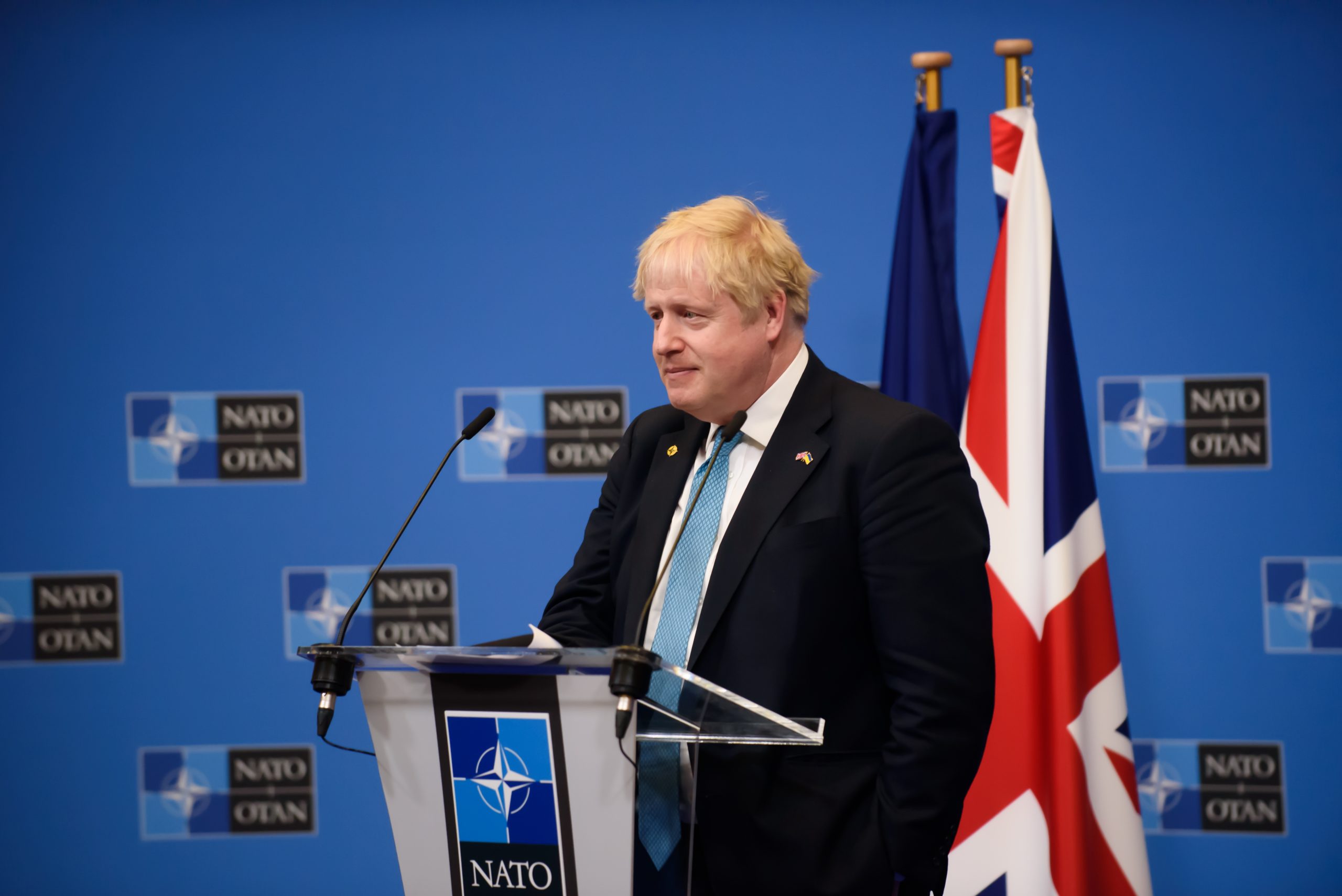Ten Years of Boris Johnson?
Ever on the edge of ruin, Britain’s controversial prime minister survived a no-confidence last week.

Lost in the farrago of an economy careening toward recession, the ever-continuing war in Ukraine, and the flat-out boring spectacle of America’s oldest-ever president, a man who is never boring cashed in his seventh or eighth life last week.
“Across the pond,” British Prime Minister Boris Johnson survived a Conservative Party no-confidence vote. Seemingly the political version of Dick Cheney or Henry Kissinger, obituaries of Johnson’s premiership have been pre-written since the day he ascended to office in July 2019. Yet he never dies.
This practice of assuring the reader that it’s over for “Boris,” has picked up in earnest since the advent of “Partygate.” That is, the revelations (and photos) of Johnson and his staff repeatedly living it up during the lockdown days of 2020, even as Johnson’s government spearheaded a severe crackdown in the face of the Coronavirus. Indeed, the virus reportedly almost (literally) killed the man himself two springs back, and so no wonder by summer, he wanted to enjoy some Chablis with friends (note: even as he scolded others for doing so).
Calls for Johnson’s head, so to speak, have abated somewhat since Vladimir Putin’s invasion of Ukraine. The British elite, ever in denial of the Empire’s end, has been pound for pound more bellicose on the peripherally important theater than their kin in Washington (though, it should be said, they’ve hardly matched the Americans Pound Sterling for Pound Sterling.)
So, the vote this week had the feeling of old business. Ouster might have been more plausible if it had been held over the winter, before events once again intervened to save Boris Johnson.
The result: Johnson—the former London mayor, foreign secretary, Spectator editor and Telegraph columnist—has hung around in the global headlines now for over twenty years, or about as long as the man in the Kremlin he now so bellicosely sets himself against. (That wasn’t enough to stop Johnson from reportedly demanding members of parliament show him their secret ballots in the no-confidence vote… democracy in action).
Johnson’s European rival, French President Emmanuel Macron, is more commonly assailed for his Machiavellian mutability. But it is Boris Johnson who has pulled off the feat of first cheaply attacking Mitt Romney at the Olympics, then consulting with Steve Bannon and allowing himself to be portrayed as a “Trumpian natonalist,” then pledging with Joe Biden to “build back better,” all in the span of ten years.
As the battle for Ukraine has shown, Johnson’s reflexive militarism is a clear enough core conviction. A perusal of the prime minister’s Telegraph archive tells the same story. Johnson has long agreed with his on-again, off-again friend, British M.P. Michael Gove (who had to be restrained in August 2013 when the British passed on a round of Middle East airstrikes) about the need to “do something” whether it be in Syria, or Iraq, or the Donbass.
And it certainly fits the scribbler-statesman’s plain desire to be seen as a latter-day Churchill. At the very least, Johnson has a penchant for simultaneously living in luxury and poverty, as of course did Britain’s wartime leader. Although in Johnson’s case, it appears the hold on the bank account is more alimony than ascots, more indeterminate number of children than Pol Roger champagne.
But this writer’s fusillade is mere set-up.
Despite headlines to the contrary, one can see a more plausible path today for Prime Minister Boris Johnson’s long term political survival than at any time since his smashing 2019 general election victory. On the eve of the vote, Freddy Gray laid out in the Spectator both what I think is the reality of the man, as well as the ludicrous paucity of available alternatives:
I have a childhood memory of the hatred many people felt towards Thatcher. The mass loathing of Boris… is different. Thatcher didn’t mind being hated because she had fixed beliefs: an ideology, for better or worse. Boris’s political philosophy has always been far looser. And that’s why the popular rage against him is more like contempt: people hate him for not believing in anything. … They hate him now. They’d miss him soon after he’s gone. Jeremy Hunt? Liz Truss? Ben Wallace? Tom Tugendhat? Come on.
Johnson biographer Tom Bower has reported that Johnson, at his core, is a loner.
Perhaps similar to Elon Musk in this way, with the basic exception of his paramour du jour, Johnson “doesn’t have friends,” says Bower. Johnson is a disloyal human being. It’s a marked contrast from other world leaders, who often ascend the ranks with almost mafioso omerta when it comes to friends and allies. It’s notably different from predecessors in “Number 10” like David Cameron.
Subscribe Today
Get daily emails in your inbox
Another interesting morsel in the Bower reportage is that Johnson and his new wife, Conservative operator Carrie Symonds, desire ten years in power. That would put him, in the prime minister’s mind, in the ranks of Thatcher, Tony Blair, and yes, Churchill, in terms of executive longevity. Though there are murmurings of an early election, Johnson doesn’t have to call an election until December 2024 (what an autumn that’s shaping up to be), and after that, could serve straight through to 2029 uninterrupted.
In addition to differing with Johnson over Ukraine, Henry Kissinger this month indicated that he doubted Johnson’s overall style of leadership.
The old American wiseman credited Johnson with “altering the direction” of British society. And, surely, an arch-realist can admire a sheer will to power. But Kissinger gestured at the general unease with Johnson—that he might not be another Churchill, as much as the center-right answer to Blair. That is, like Blair, Johnson’s skills and penchant for survival are not in question. What is less clear is what anyone else on the planet has to show for his talent.
Comments